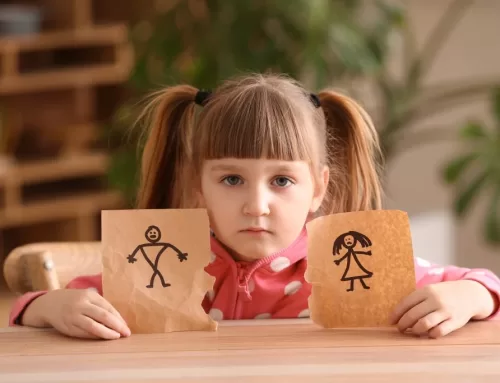Play therapy is a specialized approach that harnesses the therapeutic power of play to help children express emotions, navigate challenges, and foster growth in a safe and supportive environment.
At Unwritten Endings, we use a variety of interventions tailored to meet the developmental and therapeutic needs of each child. Read on to learn more about our favorite play therapy interventions and how they are implemented:
1. Sandplay Therapy: Involves creating scenes or worlds in a tray of sand using miniature figures and symbols. This method allows children to symbolically express and process emotions, conflicts, and experiences.
2. Art Therapy: Utilizes art materials like paints, clay, and markers to facilitate self-expression, emotional exploration, and communication of thoughts and feelings that may be difficult to verbalize.
3. Therapeutic Games: Incorporates structured games and activities to promote social skills, emotional regulation, problem-solving, and cognitive development through play.
4. Puppet Play: Involves using puppets to act out scenarios, explore relationships, and facilitate storytelling. This allows children to externalize feelings and gain insights through imaginative role-play.
5. Role-Playing: Encourages children to take on different roles and personas, enabling them to explore social dynamics, practice new behaviors, and process real-life situations in a controlled environment.
6. Guided Imagery and Visualization: Uses storytelling and guided imagery techniques to engage children in imagining peaceful scenes or journeys, promoting relaxation, emotional regulation, and psychological healing.
7. Dramatic Play: Involves using props and costumes for pretend play, enabling children to explore themes, roles, and emotions in a creative and playful manner.
8. Storytelling and Bibliotherapy: Utilizes books, stories, or narratives to facilitate discussions, promote empathy, and address specific issues or challenges that children may be facing.
9. Movement-Based Activities: Includes activities like dance, yoga, or outdoor play to enhance physical fitness, sensory integration, emotional regulation, and social interaction.
10. Mindfulness Exercises: Incorporates mindfulness techniques such as mindful breathing and sensory awareness to enhance self-awareness, attention control, and emotional resilience.
These interventions are carefully adapted and tailored by our therapists to suit each child’s age, developmental stage, presenting issues, and therapeutic goals. They provide valuable opportunities for children to engage in meaningful play experiences that support emotional, social, cognitive, and physical development within a therapeutic framework.
By utilizing play as a medium for healing and growth, we can empower children to explore their inner worlds, build resilience, and develop essential skills that can positively impact their overall well-being and future success!




Leave A Comment